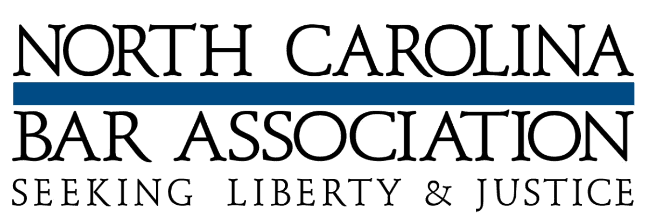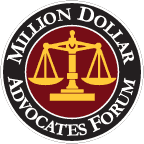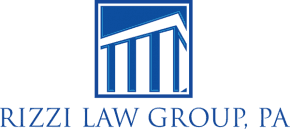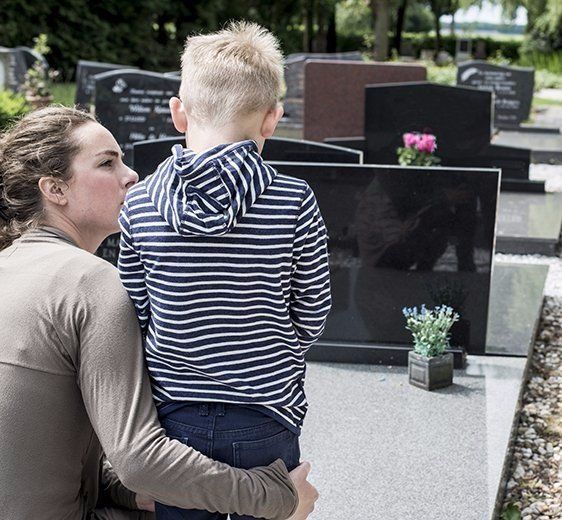Wrongful Death Attorney Serving Greensboro & Winston Salem, NC
Has your family experienced the unthinkable? Someone’s negligence or wrongdoing has caused the wrongful death of a loved one. Now, in spite of the overwhelming fog of grief and upheaval, you must make some difficult decisions and take some unfamiliar actions to care for your family. At Rizzi Law Group, we are here to help.
Whether your loved one’s tragic wrongful death was caused by an automobile crash, malfunction of a faulty product, a workplace accident or any other negligent act or deliberate omission, our attorneys have the knowledge and experience needed to address your case. With our broad legal experience, we know how to do the most thorough research and make the most thoughtful presentation that will win the fairest decision for your family.
What Is Wrongful Death?
- It can provide financial security for the surviving family members to replace lost income from the deceased, which could save the family home and ensure the education, health and welfare of any children.
- It can help bring emotional or psychological closure to the survivors’ loss.
- It can punish a seriously negligent offender, change their behavior and establish new laws or regulations so that the tragedy won’t happen again.
How Do You Prove a Wrongful Death Claim?
What Damages Can Be Recovered?
Statute of Limitations for Wrongful Death
The statute of limitations in North Carolina for a wrongful death claim is two years, which is measured from the date of the victim’s death. While there are some exceptions, they are atypical and infrequent.
At Rizzi Law Group, our wrongful death lawsuits are always handled on a contingency basis; that means we don’t get a fee until we win your case. You won’t have to worry about dipping into your family’s funds up front and you will receive a larger portion of the total financial compensation at settlement.
Our attorneys collectively offer a variety of experience with large law firms, which means that you get the benefit of a broad range of perspectives and approaches to your unique wrongful death case. And, since we are a small firm dedicated to personal services, your situation will receive the professional attention it deserves. We mean it when we say we are here to help you.
If you are in Winston-Salem, or the surrounding areas, call us
for a free consultation to evaluate your wrongful death lawsuit.
Other Locations
Raleigh Location: 414 Fayetteville St.
Fourth Floor, Raleigh, NC 27604
Greensboro Location: 713 Corporate Center Ct. Greensboro, NC 27408


No Attorney-Client Relationship or Legal Advice Communication of information by, in, to or through this Web site and your receipt or use of it (1) is not provided in the course of and does not create or constitute an attorney-client relationship, (2) is not intended as a solicitation, (3) is not intended to convey or constitute legal advice, and (4) is not a substitute for obtaining legal advice from a qualified attorney. You should not act upon any such information without first seeking qualified professional counsel on your specific matter. The hiring of an attorney is an important decision that should not be based solely upon Web site communications or advertisements.
Any cases on this website are illustrative of the matters handled by the firm and do not include all results achieved by the firm. The outcome of a particular case can’t be predicated by a lawyer’s or firm’s past results. Each case is different, and the value of a case can depend on a number of factors, such as: the facts concerning liability in the case, potential liability defenses in the case, economic and non-economic damages in the case, the legal complexity of the case, whether the defendant was insured or self insured, the available insurance coverage in the case, and whether the case was resolved through negotiation, at trial, or in arbitration.
Membership in the Million Dollar Advocates Forum is limited to attorneys who have won million and multi-million dollar verdicts and settlements. Criteria for membership in Million Dollar Advocates can be found by clicking here. Neither Rizzi Law Group, P.A., nor Attorney Michael Rizzi represents that similar results will be achieved in your case. Each case is different and must be evaluated separately.

